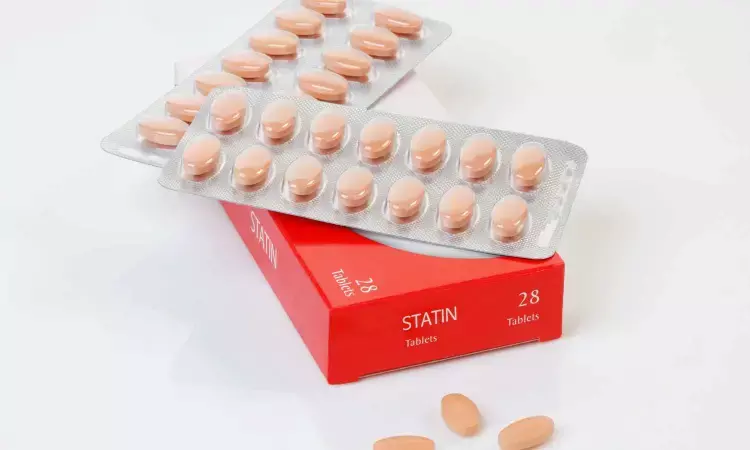- Home
- Medical news & Guidelines
- Anesthesiology
- Cardiology and CTVS
- Critical Care
- Dentistry
- Dermatology
- Diabetes and Endocrinology
- ENT
- Gastroenterology
- Medicine
- Nephrology
- Neurology
- Obstretics-Gynaecology
- Oncology
- Ophthalmology
- Orthopaedics
- Pediatrics-Neonatology
- Psychiatry
- Pulmonology
- Radiology
- Surgery
- Urology
- Laboratory Medicine
- Diet
- Nursing
- Paramedical
- Physiotherapy
- Health news
- Fact Check
- Bone Health Fact Check
- Brain Health Fact Check
- Cancer Related Fact Check
- Child Care Fact Check
- Dental and oral health fact check
- Diabetes and metabolic health fact check
- Diet and Nutrition Fact Check
- Eye and ENT Care Fact Check
- Fitness fact check
- Gut health fact check
- Heart health fact check
- Kidney health fact check
- Medical education fact check
- Men's health fact check
- Respiratory fact check
- Skin and hair care fact check
- Vaccine and Immunization fact check
- Women's health fact check
- AYUSH
- State News
- Andaman and Nicobar Islands
- Andhra Pradesh
- Arunachal Pradesh
- Assam
- Bihar
- Chandigarh
- Chattisgarh
- Dadra and Nagar Haveli
- Daman and Diu
- Delhi
- Goa
- Gujarat
- Haryana
- Himachal Pradesh
- Jammu & Kashmir
- Jharkhand
- Karnataka
- Kerala
- Ladakh
- Lakshadweep
- Madhya Pradesh
- Maharashtra
- Manipur
- Meghalaya
- Mizoram
- Nagaland
- Odisha
- Puducherry
- Punjab
- Rajasthan
- Sikkim
- Tamil Nadu
- Telangana
- Tripura
- Uttar Pradesh
- Uttrakhand
- West Bengal
- Medical Education
- Industry
Moderate-intensity statins and ezetimibe combo okay for very high-risk ASCVD patients: Analysis of RACING trial

Korea: A combination of ezetimibe with a moderate-intensity statin could be considered an effective and feasible therapeutic option for patients at very high risk of atherosclerotic cardiovascular disease (ASCVD), a recent study published in JAMA Cardiology.
The post hoc analysis of 1511 patients at very high ASCVD risk from the RACING randomized clinical trial revealed that moderate-intensity statin with ezetimibe combination therapy was comparable with high-intensity statin monotherapy regarding a 3-year primary endpoint. The combination was associated with greater low-density lipoprotein cholesterol (LDL-C) reduction, lower drug intolerance, and achievement of LDL-C less than 70 mg/dL.
The study's primary endpoint was calculated as the 3-year outcome of cardiovascular death, peripheral or coronary revascularization, nonfatal stroke, or hospitalization of cardiovascular events.
The 2018 guideline by the American Heart Association/American College of Cardiology on lipid management recommend the initial use of high-intensity statin in very high–risk (VHR) patients with ASCVD, as this population is at greater risk of recurrent ASCVD events. However, concerns about statin-associated adverse effects lead to the underuse of this strategy in practice, despite its distinct and undoubtedly benefit in VHR patients.
Recently, the RACING trial showed the moderate-intensity statin with ezetimibe combination therapy to be noninferior compared with high-intensity statin monotherapy for the 3-year composite cardiovascular outcomes in ASCVD patients. However, whether the effect is preserved among VHR patients is unknown.
To fill this knowledge gap, Seung-Jun Lee, Yonsei University College of Medicine, Seoul, Korea, and colleagues sought to investigate the outcome of ezetimibe combination with moderate-intensity statin therapy in VHR patients with ASCVD.
The study was conducted from 2017 to 2018 at 26 centres in Korea. Study participants were patients with documented ASCVD.
Patients were randomly assigned to moderate-intensity statin with ezetimibe (rosuvastatin, 10 mg, with ezetimibe, 10 mg) or high-intensity statin monotherapy (rosuvastatin, 20 mg). Patients at very high risk for ASCVD were defined according to the 2018 AHA/ACC guidelines.
The study led to the following findings:
· A total of 3780 patients (mean age, 64 years; 75% were males) in the RACING trial, 40.0% were categorized as VHR, which was associated with a greater occurrence of the primary end point (hazard ratio [HR], 1.42).
· There was no significant difference in the primary endpoint between those who received combination therapy and high-intensity statin monotherapy among patients with VHR disease (11.2% versus 11.7%; HR, 0.96) and non-VHR disease (7.7% versus 8.7%; HR, 0.88).
· The median LDL cholesterol level was significantly lower in the combination therapy group than in the high-intensity statin group (VHR, 1 year: 57 mg/dL vs 65 mg/dL; non-VHR, 1 year: 58 mg/dL vs 68 mg/dL).
· In both the VHR and non-VHR groups, combination therapy was associated with a significantly greater mean change in LDL-C level (VHR, 1 year: −19.1 mg/dL vs −10.1 mg/dL; 2 years: −22.3 mg/dL vs −13.0 mg/dL; 3 years: −18.8 mg/dL vs −9.7 mg/dL; non-VHR, 1 year: −23.7 mg/dL vs −12.5 mg/dL; 2 years: −25.2 mg/dL vs −15.1 mg/dL; 3 years: −23.5 mg/dL vs −12.6 mg/dL) and proportion of patients with LDL-C level less than 70 mg/dL (VHR, 1 year: 73% vs 58%; non-VHR, 1 year: 72% vs 53%).
· Discontinuation or dose reduction of the lipid-lowering drug due to intolerance occurred less frequently in the combination therapy group (VHR, 4.6% vs 7.7%; non-VHR, 5.0% vs 8.7%).
"By corroborating the RACING trial results, the current study results suggest that an early ezetimibe combination could be a reasonable therapeutic approach for very high-risk patients with ASCVD," the researchers concluded.
Reference:
Lee S, Cha J, Choi WG, et al. Moderate-Intensity Statin With Ezetimibe Combination Therapy vs High-Intensity Statin Monotherapy in Patients at Very High Risk of Atherosclerotic Cardiovascular Disease: A Post Hoc Analysis From the RACING Randomized Clinical Trial. JAMA Cardiol. Published online August 02, 2023. doi:10.1001/jamacardio.2023.2222
Dr Kamal Kant Kohli-MBBS, DTCD- a chest specialist with more than 30 years of practice and a flair for writing clinical articles, Dr Kamal Kant Kohli joined Medical Dialogues as a Chief Editor of Medical News. Besides writing articles, as an editor, he proofreads and verifies all the medical content published on Medical Dialogues including those coming from journals, studies,medical conferences,guidelines etc. Email: drkohli@medicaldialogues.in. Contact no. 011-43720751


